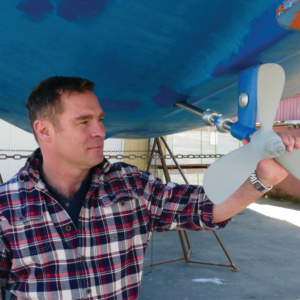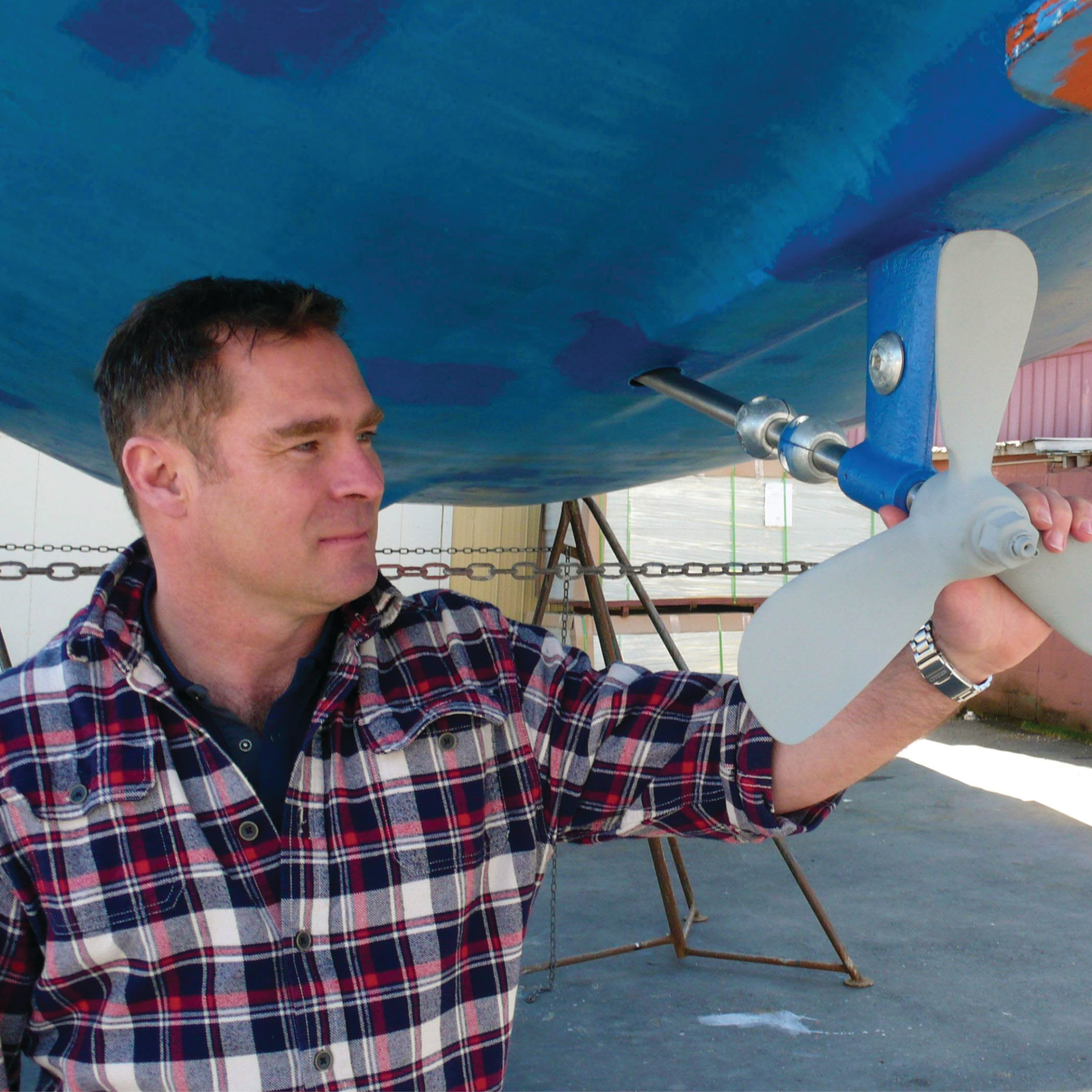
My husband and I have been living on sailboats for a couple of years now. In the past two years, we have purchased two different sailboats that were very different from one another in many ways. The first boat was a very well made, production-built, 1982 Ontario 32. The second was a custom-built 45-foot cutter rigged sloop—and quite a different bag of beans. Prior to purchasing both boats, we hired a surveyor to check them over for any obvious issues that might be deal breakers. With the first, we felt satisfied with the job the surveyor did as we didn’t find any extra problems within the year that we owned the boat. However, this was not the case with our second purchase, and we spent four months out of the water just getting the boat safe to sail after believing we were purchasing a seaworthy vessel.
Every person we told our woes to would ask, “did you get a survey done?” Yes, we did. But it occurred to me only after discovering so many issues that I honestly wasn’t clear on which problems a surveyor was responsible for finding, which things I was responsible for looking for and what I would need to do to fix many of the problems no one noticed during the survey until after we had bought the boat. It might seem dumb, but we hadn’t actually researched that.
Through this process and after buying our second boat, we met Mark Ralston of Van Isle Marine Surveyors, who has spent his entire life around boats. From his childhood spent sailing with his family, to working in marine service and sales, as a tugboat captain and as a surveyor in recent years, Mark knows boats. Mark is also a member of SAMS, the Society of Accredited Marine Surveyors.
I thought it may be a good idea to interview Mark in order to get a more accurate picture of what a marine surveyor is responsible for, or not, and what their job is really all about.
Q: Why do people hire you?
A: People mostly hire me to perform vessel condition and valuation surveys for pre-purchase and insurance. Pre-purchase is a lot more detailed and in-depth and is done when someone is looking to purchase a boat which is new to them.
Q: What is your role as a surveyor in the boat buying process?
A: I look at the structural integrity of the hull and underwater machinery when the boat is out of the water, such as the keel joint, rudder, shaft, cutlass bearing, propeller, signs of groundings on the keel, evidence or repair work on the hull, etc. I inspect the deck for moisture issues by percussive sounding and taking moisture readings. I also look for evidence of major or minor repairs throughout the vessel, look over electrical systems, wiring and current protection and inspect the shore power, especially with the number of home wiring jobs I see. I check seacocks and note if they are operational or not. I check propane systems, using ABYC standards as a guideline, and try to advise people on workable solutions if I find unsafe installations. I also inspect electronics for power up only. I advise on the condition of the boat and look for any major issues or “deal breakers” and what can be done or not done to rectify them. I provide a fair market-value opinion based on the prices that other boats of similar make and model have sold for, and an estimated new replacement cost.
Q: What are the systems you look at when surveying a sailboat?
A: In addition to the before mentioned, I inspect all rigging at deck level and visually inspect the engine and running gear for issues, but do not perform a mechanical inspection.
Q: What do you not look at when surveying a sailboat?
A: I do not do an in-depth mechanical inspection. I usually recommend hiring a mechanic for this—a gas or diesel tech—to inspect the engine. I also do not conduct an in-depth rigging inspection. The potential buyer usually hires a rigger for this who will climb the mast and check all fittings up and down.
Q: What are the responsibilities of the boat buyer in relation to a boat survey?
A: Do research on the boat you are looking to buy before you show up and let the surveyor know of any problems that they may not be aware of with this particular vessel. Especially if the boat is not super common, the surveyor may not be aware of some of the common issues with the boat being looked at. I always research vessels to the best of my ability before performing a survey.
Q: What are your responsibilities as a surveyor? What are you not responsible for?
A: I note things as serviceable or not serviceable, but I do not note what kind of condition something is in. I make recommendations on what can be done, or what I think should be done. I look at components individually as opposed to just looking at the whole boat. I look at vessel construction using Transport Canada construction standards for small vessels, ABYC standards and NFPA as guidelines and make recommendations based on these authorities, as well as what I feel is of “good marine practice.” I will make note of safety issues that need to be dealt with immediately, things that should be done in near future and things that are suggested as maintenance and upgrades as three different categories. At the end of the survey, recommendations speak to the condition of the vessel. I also specify if I can’t get into certain areas and if I was unable to check them thoroughly. I am not permitted to start pulling things apart in the boat, but the broker and client can with the owner’s permission. This is because I am liable for anything I break during the process, so I don’t remove panels or anything myself. And finally, I work only for the client and have their best interest in mind.
Q: What questions should a buyer bring for you when looking at buying a boat?
A: Have an idea of what kind of boat you are looking for and for what purpose. I am there to answer direct questions about systems and structural integrity, maintenance, etc. Have things narrowed down to what type of boat you are looking for, and then have questions about systems and physically what is currently there. Buyers can also ask questions about the background of the surveyor and what makes them a marine surveyor. You can also request a sample survey to review a surveyor’s work.
Q: Any final comment or things you think people should know about marine surveyors?
A: Surveyors aren’t required to be members of an association in Canada. Anyone can become a surveyor. Basically, a surveyor just needs to be on the underwriter’s list. Ask yards and brokers who they would recommend for a surveyor if you are wondering who to hire.
If we had known more about what to expect from a surveyor, I think we would have done a more thorough job of looking for potential issues when examining the boat. So do your research before hiring a surveyor and come to the survey with as much information about the boat that you can. At least we will be much better informed the third time around!
[SIDEBAR]
A Surveyor’s Toolkit
When buying a boat, it is always recommended that you hire a marine surveyor to inspect the boat thoroughly. If you choose to forgo this measure, be sure to arm yourself with these tools. But don’t forget the most important tool of all: Knowledge.
Basic
Notebook
Flashlight
Binoculars
Multi-tool
Camera
Notebook
Measuring Tape
Magnet
Small Hammer
Advanced
Moisture metre
Multimetre
Magnifying glass
